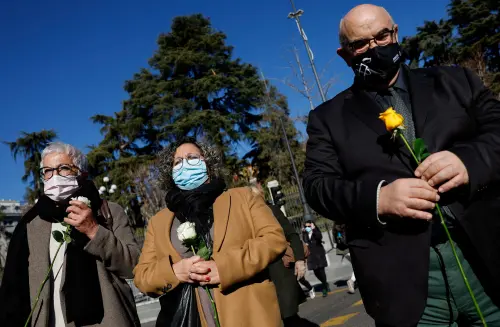A documentary shedding light on the neglect of elderly nursing home residents in Spain's Madrid region during the COVID-19 crisis has spurred demands for the region's president to resign.
Isabel Diaz Ayuso, a prominent figure in the opposition People's Party, gained recognition for her controversial decision to keep Madrid's bars and restaurants open during the pandemic, aiming to support the struggling hospitality sector.
However, in March 2020, the region opted not to admit elderly care home residents with severe illnesses or disabilities to hospitals to ease the strain on overwhelmed healthcare facilities, leading to what became known as the "protocols of shame."
While nursing home residents with private health insurance received hospital care, others deemed to have exclusion criteria, like limited mobility or impaired cognition, were denied access.
The European Committee of the Regions reported that Madrid experienced the highest excess mortality in Europe during the pandemic, surpassing the average by approximately 44%.
A documentary titled "7,291," broadcast by state-run TVE, disclosed the harrowing details related to the protocols, citing the official data of the region.
Director Juanjo Castro emphasized the importance of recognizing past mistakes to prevent their recurrence: "Society needs to know what happened so that it doesn't repeat itself."
Following the documentary airing, there was widespread public outcry on social media, with calls for Ayuso's resignation gaining traction under the hashtag "gerontocaust."
Ayuso has disputed the death toll figures, claiming they were exaggerated by political opponents. Her administration insists that 4,100 deaths occurred among nursing home residents with confirmed COVID diagnoses during the initial wave, a period when widespread testing was limited.
While a lawsuit has been filed by relatives of deceased nursing home residents alleging discrimination in healthcare provision, legal action remains pending, with prior cases dismissed and an earlier inquiry closed.
Defending her policies, Ayuso criticized the national government's pandemic response and reaffirmed her commitment to supporting businesses. As the head of the capital region, Ayuso, maintaining majority support, is not up for re-election until 2027.
